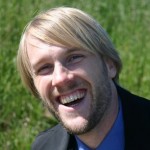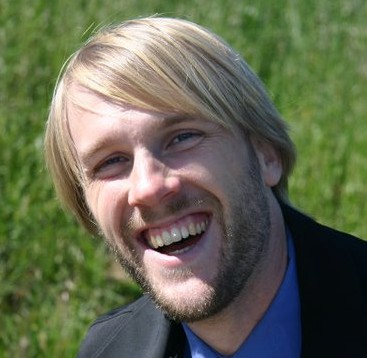As Sullivan and other religious studies scholars complicate terms like religion and secularism, reducing these terms to near incoherence, and insist on the constant intermingling of the sacred and the secular, they leave jurists and legislators in a predicament with important practical consequences.
Religion, Secularism, and the Chaplaincy
By Dusty Hoesly, University of California, Santa Barbara
Published by the Religious Studies Project, on 24 April 2013 in response to the Religious Studies Project Interview with Winnifred F. Sullivan on Religion and the Law (22 April 2013)
Winnifred Fallers Sullivan, Professor and Chair of the Religious Studies Department at Indiana University, Bloomington, may be the supreme interpreter of the intersection of law and religion in American society today. Each of her three books—Paying the Words Extra, The Impossibility of Religious Freedom, and Prison Religion—treats individual legal cases both textually and anthropologically, examining their particular cultural and legal contexts as well as their wider import for discourse in American law and society generally. Her work is attuned equally to debates within the field of religious studies, especially to how scholars of religion constitute the object of their study.
In this interview for The Religious Studies Project, Sullivan focuses on her latest project, which examines chaplaincy in secular settings, as well as on her larger body of work. Her recent presentation, “Ministries of Presence: Chaplains as Priests of the Secular,” uses chaplaincy as a lens for thinking beyond her previous work in critiquing constitutional and legal protections for religious freedom, and arguing for the instability and incoherence of the category of religion as a basis for legal regulation. Putting aside her study of the management of religion in constitutional settings, in this project Sullivan examines how religion and law shape each other on the ground. She concludes that chaplains have come to serve a role of ministering to what is increasingly understood as a universal spiritual need, which she labels a “naturalization of religion.”
For Sullivan, the figure of the chaplain in Western Christendom has always been an ambiguous figure, a minister whose duties lie away from church authority or congregational demands. In modern secular institutions such as hospitals, prisons, and the military, the chaplain’s role remains ambiguous since, unlike doctors, guards, or soldiers, the chaplain is an explicit broker between the sacred and the secular. The chaplain is paid by secular institutions and beholden to secular authorities, despite the religious character of the chaplain’s work or the chaplain’s religious allegiance. Chaplains may find themselves obliged to endorse secular missions, such as nationalism or militarism, that run contrary to the chaplain’s religious mission.
The role of the chaplain and the social perception of chaplaincy in America have both changed significantly since World War II, Sullivan argues. In the mid-twentieth century, patients, inmates, and soldiers imagined that chaplains had specific ministerial resources that were particular to each denomination, such that Catholic priests, for example, could offer services that no other denomination’s chaplains could. Today, however, chaplaincy is far more generalized and less identified with any particular tradition. Contemporary chaplains practice a “ministry of presence,” a stripped-down form of witness (to use a Christian word) that is a “suffering with” those seeking spiritual guidance. Chaplains are trained to de-emphasize their individual religious identities so that they can provide a non-imposing, non-coercive presence, letting clients instead take the lead in terms of any religious specificity.
In her presentation, Sullivan observes the rise of credentialing as a major shift in chaplaincies during the 20th century. Credentialing, rather than mere religious training, is now required in order to serve as a chaplain. Would-be chaplains must earn a Master of Divinity degree, intern with a clinical pastoral education program, and obtain an ecclesiastical endorsement, all of which must be accredited or recognized by the government. These cooperative efforts between state and religion have resulted in the standardization and professionalization of the chaplaincy. Anyone can be a chaplain today, Sullivan argues. It becomes a white collar job, one requiring expensive educational training and a lengthy apprenticeship. As Randall Collins has argued, the credential becomes symbolic of one’s ability to do the actual work.
For chaplains who must serve a diverse clientele, including Roman Catholics, Wiccans, Southern Baptists, and atheists, specific denominational beliefs and practices, as well as religion itself, become “cultural resources” (to use James Beckford’s term). Religion loses its claim to be sui generis, instead revealing itself to be socially constructed according to the practical needs of the moment when a client requests the services of a chaplain. This offering of non-denominational spiritual advice to any and all seekers is illustrative of the secularization and commoditization of the chaplaincy.
But the process is not complete and, therefore, neither is Sullivan’s analysis. Atheists and secular humanists may be consumers of chaplaincy services, but they are not yet permitted by the government to serve as chaplains in hospitals, prisons, or the military. Even if the credentialing process in theory is open to any person, from whatever background, as Sullivan claims, this does not mean that anyone can become a chaplain in actual practice. Groups such as the Military Association of Atheists and Freethinkers are seeking recognition by the Armed Forces Chaplains Board, but they have been unsuccessful so far. That said, many prisons now include yoga and meditation groups, blurring the boundary between secular and religious practices and challenging the role of prison chaplains as exclusive brokers between the sacred and the secular. And some higher education institutions, including Harvard, Rutgers, Stanford, Columbia, and American University, now incorporate humanist chaplaincies, responding to a growing call for guidance that is explicitly secular.
How might these humanist movements complicate Sullivan’s analysis? Sullivan argues that in contemporary American jurisprudence religion has become a universal human phenomenon, albeit one that takes many forms. But in the instances noted above, we see people who reject religion and yet who desire counseling and meaningful ritual during difficult times in their lives. These people feel that they are not being best served by the supposedly secularized chaplains which Sullivan describes. They want a chaplain with a particularly secular worldview rather than a naturalized non-denominational Protestantism which they perceive as coercive and not representative of their beliefs. While Sullivan maintains that today’s chaplains are priests of the secular, actual secular people are excluded from the chaplaincy.
As Sullivan and other religious studies scholars complicate terms like religion and secularism, reducing these terms to near incoherence, and insist on the constant intermingling of the sacred and the secular, they leave jurists and legislators in a predicament with important practical consequences. If religion and secularism are unstable and interpenetrating categories in American law, as Sullivan has argued, how can bureaucratic functionaries or judges justify excluding secular humanists from the chaplaincy? Despite Sullivan’s claims about the naturalization of religion and the homogenization of the chaplaincy, American law still recognizes distinctions between what is religious and what is secular, and so do the people who consume and seek to provide chaplaincy services.
This material is disseminated under a Creative Commons Attribution-NonCommercial-NoDerivs 3.0 Unported License. and can be distributed and utilised freely, provided full citation is given.
About the Author
 Dusty Hoesly is a doctoral candidate in the Department of Religious Studies at the University of California, Santa Barbara, specializing in Religions of North America. His research focuses on religion and irreligion in the American West, specifically the values held by people who self-describe as not religious, how those values developed, how they translate into social or political action, and how irreligious people interpret experiences that stand apart from ordinary life. Incorporating fieldwork, surveys, and historical and material culture research, this project will help explain the growth of religious “nones” in the U.S. and reexamine the categories of sacred and secular in contemporary society. Other research interests include religion in the American West, comparative secularisms, liberal evangelicalism, and religion and politics. He has previously published The Last Best Hope of Earth? Bron Taylor and the Limits of Dark Green Religion for the Religious Studies Project.
Dusty Hoesly is a doctoral candidate in the Department of Religious Studies at the University of California, Santa Barbara, specializing in Religions of North America. His research focuses on religion and irreligion in the American West, specifically the values held by people who self-describe as not religious, how those values developed, how they translate into social or political action, and how irreligious people interpret experiences that stand apart from ordinary life. Incorporating fieldwork, surveys, and historical and material culture research, this project will help explain the growth of religious “nones” in the U.S. and reexamine the categories of sacred and secular in contemporary society. Other research interests include religion in the American West, comparative secularisms, liberal evangelicalism, and religion and politics. He has previously published The Last Best Hope of Earth? Bron Taylor and the Limits of Dark Green Religion for the Religious Studies Project.
Bibliography
- Collins, Randall. The Credential Society: A Historical Sociology of Education and Stratification. New York: Academic Press, 1979.
- Sullivan, Winnifred Fallers. Paying the Words Extra: Religious Discourse in the Supreme Court of the United States. Cambridge, MA: Harvard University Press, 1994.
- Sullivan, Winnifred Fallers. The Impossibility of Religious Freedom. Princeton, NJ: Princeton University Press, 2009.
- Sullivan, Winnifred Fallers. “We Are All Religious Now. Again.” Social Research 76.4 (2009): 1181-1198.
- Sullivan, Winnifred Fallers. Prison Religion: Faith-Based Reform and the Constitution. Princeton, NJ: Princeton University Press, 2011.



